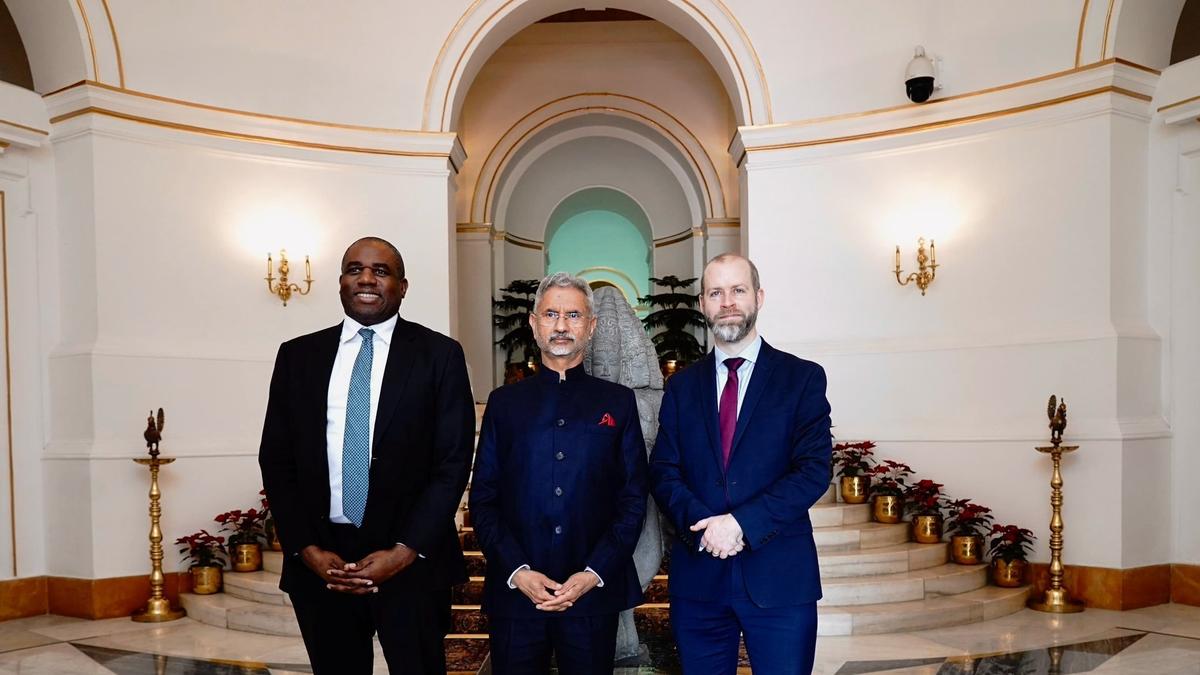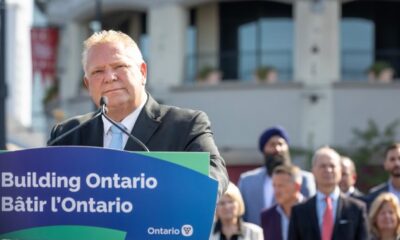Prime Minister Narendra Modi spoke to U.K. Prime Minister Keir Starmer on Saturday, a day after the Labour Party came to power on the back of a massive mandate. Sources said New Delhi was preparing for a high-level visit from the new government in the next few weeks. The election result has not come as a surprise, with polls indicating Mr. Starmer’s win for more than a year, and New Delhi has had several engagements with the Labour Party, particularly in the past few months, sources added.
In a post on X, Mr. Modi said he had congratulated Mr. Starmer and remained committed to “deepening Comprehensive Strategic Partnership and robust economic ties…”
Foreign Secretary David Lammy had visited Delhi in February while he was the Shadow Foreign Secretary, accompanied by Jonathan Reynolds, who has now been named Secretary of State for Business and Trade. In March, then Shadow Deputy PM Angela Rayner and Deputy Labour leader in Parliament, who is now the Deputy Prime Minister, had visited Delhi, addressed the business chambers and met with Vice-President Jagdeep Dhankar.
The Indian High Commission in London has been equally engaged with both Labour and Conservative parties on a “bipartisan” basis as well, and hosted receptions at both their political conventions last year. The sources said Mr. Lammy might be the first high-level visitor from the new government to Delhi if both sides are able to coordinate their schedules as he is expected to travel to the ASEAN Summit in Laos at the end of July. Or a meeting could be held at the summit itself.
Free trade agreement
Significantly, at the India Global Forum meet in the U.K. last month, Mr. Lammy had said that he expected to be in Delhi “within a month” of a Labour government being formed, especially if the two sides can “get across the line” on completing the India-U.K. Free Trade Agreement that the previous Boris Johnson and Rishi Sunak governments were unable to complete.
Also read | Starmer says controversial Rwanda deportation plan is ‘dead and buried’
Ruchi Ghanshyam, who had been the Indian High Commissioner to the U.K. from 2018 to 2020, said though the Labour Party had expressed a commitment to the FTA, it could still take some time to finalise the agreement.
“Fundamentally, the issue is that the U.K. wants greater access to the Indian market for its products and services, while India wants greater access for its people… The challenges don’t disappear suddenly overnight,” Ms. Ghanshyam said, adding that post Britain’s exit from the European Union, the “U.K. needs the FTA as much, if not more than, India”.
During the campaign, the Labour Party’s leadership dealt with a historical source of mistrust between New Delhi and its policies as opposed to the Conservative Party’s more “pro-India” stance, including its stated positions on Kashmir and Khalistan that India has always been sensitive to. During a South Asian community meeting, Labour Party Shadow Secretary of State for Women and Equalities Angela Dodds, who is in the Cabinet now, had said that it had “cleansed the party” of those with extremist views towards any group, and would act on evidence of any anti-India sentiments by the party.
However, individual Labour MPs with strong views in favour of the diaspora committed to separatist causes, as well as those belonging to the Pakistani diaspora, are still a part of the party, and keeping them onside with the new policy may be a “litmus test” for the government.
“There is a fairly strong segment within the Labour Party with views on issues sensitive to India. This question will be the litmus test as far as India is concerned. Though Keir Starmer has moved the Labour Party more to the centre, the challenges on these issues remain,” Ms. Ghanshyam said, adding that the strong mandate the ruling party now has would mean India expects it to be able to manage political irritants better.
Another key issue would be the new government’s plans to deal with the immigration issue. While Mr. Starmer has rejected the Sunak government’s tough policies that included sending undocumented immigrants to countries such as Rwanda to be processed, the Labour manifesto has promised a border control system, and will be expected to enforce “returns” agreements, similar to the one India and the U.K. signed in 2022, but have yet to be able to implement in full.








































